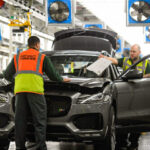Mr. Musk shared his plans with investors to construct a supercomputer to support xAI’s development. This supercomputer, equipped with 100,000 H100 Nvidia GPUs, is set to be operational by next fall. Mr. Musk disclosed that training the Grok-2 model required around 20,000 H100s, and future models like Grok-3 will necessitate 100,000 chips.
Instead of universal basic income, Elon Musk proposed the concept of ‘universal high income’ where there would be an abundance of goods and services available. However, he raised concerns about the potential impact of AI on human life, questioning the meaning of existence if computers and robots can outperform humans in every task.
Musk also discussed the influence of AI on children’s education, highlighting the role of parents in instilling values while AI transforms the learning experience by providing personalized lessons. Despite the benefits, he warned about the negative effects of social media and AI algorithms on children’s development.
These insights align with the predictions of Zack Kass and Sam Altman from OpenAI, envisioning a future where AI plays a central role in daily life, eliminating the need for traditional jobs. However, concerns have been raised about the rapid socioeconomic changes that AI adoption may bring.
Japanese engineer Satoru Ogino expressed skepticism about the idea of high incomes without work, emphasizing the value of hard work in finding meaning and happiness in life. He warned against a future where everything is easily accessible, leading to a loss of purpose and existential crises.
Executives’ Fears About AI Impact on Job Security
Recent surveys have shown that a significant number of employees use AI in the workplace, yet many fear job displacement due to automation. The pressure to adapt to AI technologies has led to concerns among workers about job security and the future of employment.
The rise of AI in industries like filmmaking has caused unrest among professionals who fear being replaced by automated systems. Hollywood saw a strike by writers and actors due to the extensive use of AI in production, highlighting the ongoing tensions between human workers and AI technologies.
Business leaders are also grappling with the implications of AI on their roles, with some CEOs already using AI tools to enhance productivity. The rapid advancement of AI technology has raised questions about its long-term impact on society and the potential consequences of human dependence on AI for decision-making.
Satoru Ogino expressed concerns about the future where AI could either pose a threat to human survival or lead to excessive reliance on technology, diminishing human autonomy and critical thinking skills.
Ellen Wan and Kane Zhang contributed to this report.
Please rephrase.
Source link





